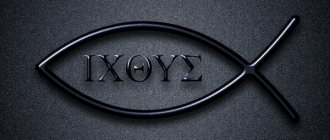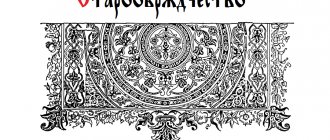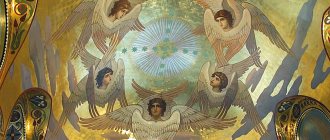What do you imagine when you hear the word “sect”?
Someone will have an image of occult rituals in a circle of candles. Another will call any religion where there is no Jesus Christ a sect.
So Protestantism causes a lot of controversy and questions among believers. It is often said that there are Protestant sects. But in general, are Protestants sectarians or not?
Let us present the Orthodox point of view. Keep in mind that other denominations of Christianity may have their own views.
On October 31, 1517, Martin Luther published 95 theses, which gave rise to Protestantism; he opposed the new movement to sects
Protestantism is not a sect, but a direction of Christianity
Protestantism does not meet the characteristics of a sect. This is a branch of Christianity and an independent religious tradition. If a sect is formed under the influence of heretical ideas, then Protestant churches are the result of a church schism.
The schism does not at all depend on theological differences, although it does not exclude them. It is caused by many reasons, their combination, including administrative, political, national, etc.
Worship in the Evangelical Church - one of the many directions of Protestantism
It is not surprising that under the influence of time, the cultural environment, and church leaders, each church branch develops its own characteristics.
But this does not negate the main thing: the breakaway, in our case the Protestant church, is not a sect. There are enough reasons to say this:
- Protestantism has a chain of succession from the apostles. The tradition of ordaining priests has been preserved in a number of denominations. For example, Anglicanism and Old Catholicism. Although many areas of Protestantism put conformity to the Church's Holy Scripture in the foreground, and ignore continuity through ordination. For Protestants, fidelity to serving biblical principles is the main sign of the continuity of the teachings of the apostles.
- Other faiths perceive Protestantism as an independent branch of Christianity.
- States all over the world recognize Protestantism not as a sect, but as a full-fledged religion.
Where did the name "Protestant" come from?
There are several versions of the answer to this question. The main version is historical. In 1526, the First Speyer Reichstag, at the request of the German Lutheran princes, suspended the Edict of Worms against Martin Luther. However, the 2nd Reichstag of Speyer in 1529 overturned this decree. In response to this, the so-called “Speyer protest” was submitted to the Reichstag in Germany by six princes and fourteen free cities of the Holy Roman Empire. Based on the title of this document, supporters of the Reformation were subsequently called “Protestants,” and the denominations that emerged as a result of the Reformation were called “Protestant.”
Protestantism has sects, like any religion
Like other religious traditions, Protestantism has sects. But this is not a feature of Protestantism, but a problem of all faiths. In Orthodoxy there are also: Khlysty, Young Stars, Self-Baptists, etc.
There is debate as to whether certain Protestant communities belong to sects or to Protestantism in general.
For example, the Watchtower Society shares characteristics with Protestants. But you can’t put an equal sign.
Firstly, Jehovah's Witnesses themselves do not want this.
Secondly, this organization has features that are not characteristic of Protestantism.
There are other controversial movements: the Charismatic Movement, the Faith Movement, Pentecostals, etc.
Each of these trends deserves separate analysis. It would be unfair to consider them together and give a general description.
Who are Protestants? Theses and Creeds
Let's start with the fact that the word PROTESTANTISM does not come from the word PROTEST. It's just a coincidence in the Russian language. Protestantism or Protestantism (from Latin protestans, gen. protestantis - publicly proving).
Among world religions, Protestantism can be briefly described as one of the three, along with Catholicism and Orthodoxy, main directions of Christianity, which is a collection of numerous and independent Churches and denominations. We need to dwell in more detail on the question: who are Protestants from a theological point of view?
There is a lot to be said here. And we need to start with what Protestants consider the basis of their faith. This is, first of all, the Bible - the Books of Holy Scripture. It is the infallible written Word of God. It is uniquely, verbally and completely, inspired by the Holy Spirit and unerringly recorded in the original manuscripts. The Bible is the highest and final authority on all matters it deals with.
In addition to the Bible, Protestants recognize the creeds generally accepted by all Christians:
— Apostolic
— Chalcedonian
— Nikeo-Tsaregradsky
— Afanasievsky
Protestant theology does not contradict the theological decisions of the Ecumenical Councils. The whole world knows the famous five theses of Protestantism:
1. Sola Scriptura - “Only Scripture”
“We believe, teach and confess that the only and absolute rule and standard by which all doctrines and all teachers are to be judged are the prophetic and apostolic Scriptures of the Old and New Testaments.”
2. Sola fide - “Only by faith”
This is the doctrine of justification by faith alone, regardless of the performance of good works and any external sacred rites. Protestants do not devalue good deeds; but they deny their significance as the source or condition of the salvation of the soul, considering them the inevitable fruits of faith and evidence of forgiveness.
3. Sola gratia - “Only by grace”
This is the doctrine that salvation is grace, i.e. a good gift from God to man. A person cannot earn salvation or somehow participate in his own salvation. Although a person accepts God's salvation by faith, all the glory for a person's salvation should be given to God alone.
The Bible says, “For by grace you have been saved, through faith; and this not of yourselves, it is the gift of God; not by works, so that no one can boast” (Eph. 2:8,9).
4. Solus Christus - “Only Christ”
From the point of view of Protestants, Christ is the only mediator between God and man, and salvation is possible only through faith in Him.
Scripture states: “For there is one God, and one mediator between God and men, the man Christ Jesus” (1 Tim. 2:5).
Protestants traditionally deny the mediation of the Virgin Mary and other saints in the matter of salvation, and also teach that the church hierarchy cannot be a mediator between God and people. All believers constitute the “universal priesthood” and have equal rights and standing before God.
5. Soli Deo gloria - “Only God be the glory”
This is the doctrine that man should honor and worship God alone, since salvation is bestowed only and only through His will and actions. No man has the right to equal glory and honor with God.
The Internet project “Wikipedia” very accurately defines the features of theology, which is traditionally shared by Protestants: “Scripture is declared to be the only source of doctrine. The Bible was translated into national languages, its study and application in one’s own life became an important task for every believer. The attitude towards the Holy Tradition is ambiguous - from rejection, on the one hand, to acceptance and veneration, but, in any case, with a reservation - Tradition (as, indeed, any other doctrinal opinions, including your own) is authoritative, since it is based on Scripture , and to the extent that it is based on Scripture. It is this reservation (and not the desire to simplify and cheapen the cult) that is the key to the refusal of a number of Protestant churches and denominations from this or that teaching or practice.
Protestants teach that original sin corrupted human nature. Therefore, a person, although he remains fully capable of good deeds, cannot be saved by his own merits, but only by faith in the atoning sacrifice of Jesus Christ.”
And although Protestant theology is not exhausted by this, nevertheless, on these grounds it is customary to distinguish Protestants from among other Christians.
Protestants have a simplified liturgical practice
Protestants try to follow simplicity and practicality in everything. Candles are used very rarely during services. For example, Lutherans and Anglicans have them. There are crosses near these same directions.
The decor is strictly maintained: no flowers, gilding, icons, etc. With rare exceptions. All this is considered unnecessary attributes.
Servants usually prefer regular business attire: tie, shirt, jacket, etc. This has its own meaning: Jesus Christ did not wear any magnificent church attire, and neither did the apostles. This means that the clergyman does not need them either.
The service rooms have benches, perhaps a podium for the speaker, and a microphone. Protestants consider this sufficient, because faith is not within walls.
Cathedral of the Holy Apostles Peter and Paul - the building of the Lutheran Church
Since the Protestant church is unpretentious in choosing premises, they often simply rent some buildings or halls.
But these are not mandatory conditions and it happens differently.
For example, the Cathedral of the Holy Apostles Peter and Paul looks like a luxurious building in the tradition of temple architecture.
It was founded in 1905 by the Lutheran Church. Architect V. A. Kossov.
1905
this year the Lutheran Cathedral of the Holy Apostles Peter and Paul was founded
This Protestant cathedral has a complex of buildings and an organ. However, inside there are white walls and benches, traditional for Protestantism.
Basic doctrine of the Protestant Church
What, besides the basic general Christian postulates, do Protestants believe in? Protestant theology includes concepts such as the necessity of justification by faith, the universal priesthood, the exclusive authority of the Bible, the total depravity of man, and the possibility of salvation only by God's grace. The theological result of the Reformation - in contrast to the teachings of the Roman Catholic Church of that time - was the classic Protestant principles of Quinque Sola (“only five”) - five Latin theses, behind which stand the fundamental postulates of the Reformation. Here they are:
- Sola Scripture (“Scripture only”):
The Bible is the only inspired and authentic Word of God, the only source of Christian doctrines, clear and self-interpretable.
- Sola Fide (“by faith alone”):
Forgiveness of sins can only be obtained by faith, regardless of good deeds and deeds.
- Sola Gratia ("by grace alone"):
Salvation comes only through God's grace, as an undeserved mercy shown by God to the sinner for Jesus' sake, not as something earned by the sinner.
- Solus Christus (“Christ alone”):
Jesus is the only mediator between God and man; salvation is possible only through faith in Him.
- Soli Deo Gloria (“Glory to God only”):
man must honor and worship God alone, for salvation is granted only and only through His will and actions—not only the gift of the atonement of Jesus on the Cross, but also the gift of faith in that atonement, born in the hearts of believers by the Holy Spirit.
To become a Protestant, you need to study this tradition and be baptized
How do you become Protestant? This is a conscious choice of a person.
The core of Protestantism is the idea of conscious acceptance of religion.
Therefore, there are very few areas of this tradition in which a person is baptized from birth. Although there are some.
One has to go a long way and study well the ideas of the Protestant Church. It is important that a person really understands what a Christian’s worldview is and how, in fact, this church differs from others. Sometimes you need to take an exam, for example, answer catachesis questions.
When the decision is consciously made, the person is baptized.
Most often among Protestants, the ritual is symbolic, although much depends on the specific tradition. After this, a person can consider himself a Protestant and continue to live by faith. It is recommended that you study the Bible carefully.
The ritual side is not so important for Protestantism. It does not contain the idea of visiting a temple and praying to icons. Home prayer is a more common practice.
If an Orthodox person wants to become a Protestant, then the question of rebaptism arises. It is solved in different ways. If an Orthodox Christian is baptized at an unconscious age, then most often he is recommended to be baptized into Protestantism.
Protestant baptism. Baptistism
But this is not interpreted as rebaptism, but as the first conscious baptism. What happened in childhood is not considered a properly performed sacrament.
If an Orthodox believer is baptized at a conscious age, then he may not be rebaptized. The idea is popular among Protestants that baptism in Orthodoxy or Catholicism is identical to any other.
A person has already joined the Church of Christ, and the choice of tradition does not change this fact.
Features of the Protestant Church
What is the essence of the Protestant Church, and how does it differ from the other two Christian churches?
First of all, let us note that the Protestant Church is a real church. It has all the signs and characteristics of a church. In addition, time and history have proven that Protestants are not a whim of the Middle Ages, but a Christian church that has taken its unique place in the history of Christianity.
Protestantism arose in Europe in the 1st half of the 16th century. as opposition to the institutions and practices of the Roman Catholic Church. The process of transforming church practice is usually called “Reformation”, or “reconstruction”. The ideal of the Reformation was a return to apostolic Christianity with its original Christian principles, from which, according to the ideologists of the Reformation, the Roman Catholic Church had moved away.
The movement to return the Church to apostolic Christianity was led by the priest Martin Luther. Luther's first open speech against church policy took place on October 17, 1517, when he published 95 theses criticizing the teachings of the Catholic Church on the sale of indulgences, purgatory, prayers for the dead, and salvation through the merits of saints. Among other things, he rejected papal power, the special grace of the priesthood and its mediation in the salvation of people, church ritual and the subordination of the Church to secular power.










